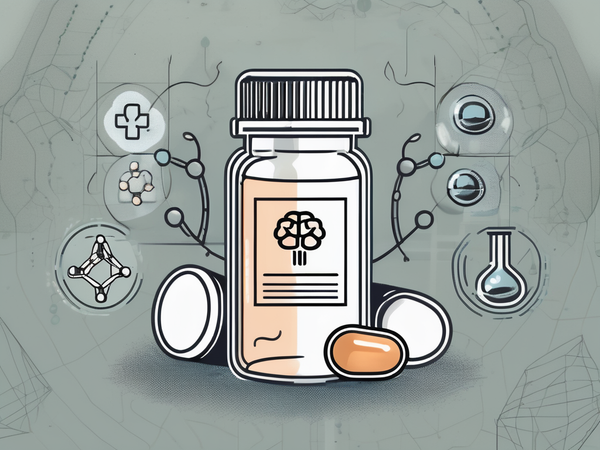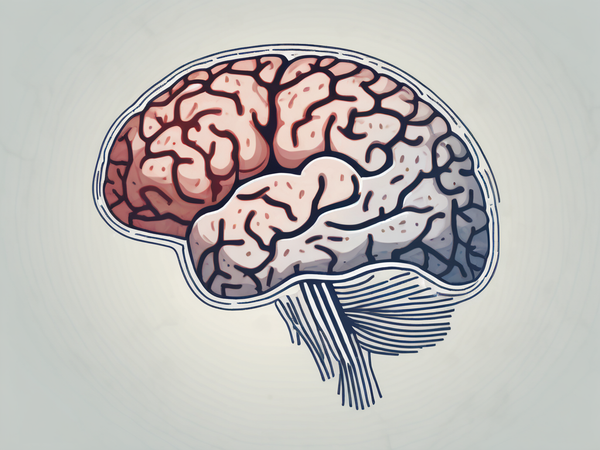We often take our mental health for granted, to prioritise other things. Whereas the people suffering from it often fail to admit that they have issues due to the stigma around it. There are many reasons people keep their feelings to themselves and don’t ask for help. People worry about what others may think of them or worry, they will be judged by their mental illness, or struggle with unhelpful thoughts such as “asking for help is a weakness.”
This World Mental Health Day let’s break the stigma, reflect on how we are feeling, what we can do to look after ourselves now and in the future and find ways that benefit our mental health.
Let's learn more about World Mental Health Day, let us find the early signs of mental health issues, and find ways on how to help ourselves and with other suffering from it.
About World Mental Health Day
Mental health adversely affects the lives of people and their families all across the globe. Moreover, people often consider it taboo to share their feelings and mental health issues with others, worsening the situation. That is why it is crucial for the general perception of the world to change when it comes to mental health. And that is all that the Mental Health Day is all about. The day provides great opportunities for people to share their feelings and find ways to take care of their mental health.
Each year, 10th October is celebrated with a particular theme. Some popular ones to date are "Women and Mental Health," "Mental Health and Human Rights," "Children and Mental Health," etc. This year's theme is "Mental health in an unequal world."
What are the Early Signs of Mental Health Issues?
Here are some early warning signs of mental illnesses and disorders:
-
Mood Changes -
You may notice a sudden shift in your feelings and mood. These changes can also be over time. One time you are feeling happy and excited, and the next moment, you might feel sad or depressed.
-
Feeling of Uneasiness –
You might often feel sad, depressed, worried, restless or panicky all the time.
-
Sleep or Appetite Changes –
There can be a change in your sleep pattern or a sleeping disorder. You may also notice eating disorders where you eat too much or too little.
-
Memory or concentration problems –
You might face trouble concentrating, low memory or find it tough to explain logical thought in simple words.
-
Increased Sensitivity –
Your senses might become too much or less sensitive. You might also experience irritability, tearfulness, etc.
-
Disconnection –
You might lose touch with reality. Feel Disinterested in what is happening around the world or you are a common symptom of a mental illness. You might also notice hallucinations, paranormal phenomena, or nightmares.
Although these symptoms do not directly signify a mental illness but can be an indication, it is always better to go for a further evaluation than to make assumptions.
Approach Towards Improving Your Mental Health
It is time to feel free to share your feelings related to mental health and show your support to all those who suffer from any mental illness and disorder. Here are a few steps you can take that can positively impact
1. Don’t buy into the stigma
Many believe that mental illness is a sign of weakness and that you or the person struggling should be able to control it without help. Due to these perceptions you may treat yourself or others harshly. Seeking counseling, education, being kind to one’s self and others, and finding support from others with mental illness can help gain positive self-esteem, perspective, and overcome destructive judgment. Education can also help to move one toward acceptance of the areas they struggle in, as one learns they are not alone. Seeking help is imperative.
2. Speak to your loved ones:
You (or your loved ones) can also talk openly about the illness and daily struggles with safe and supportive people. Speaking up about one’s recovery process will help people to understand the challenges others faces. When people truly understand what mental illness is, they are more likely to move past their negative views. Remember to avoid expecting people to understand right away. Stigma takes time to overcome. Be gentle with yourself and others in this process. Family therapy may also be helpful and be a neutral place to discuss barriers and obstacles.
3. Seek Therapy :
Have you been ignoring your mental health by not seeking therapy even if you need it? If yes, it's time.
Having an evaluation by a mental health or other health care professional can help learn more about mental illness, including signs and symptoms. It will provide supportive counselling about daily life and strategies for stress management and help being monitored closely for conditions requiring more intensive care.
A good therapist can also provide insights on how to manage your mental health, face challenges, and confront your deep-rooted traumas and fears.
4. Choose empowerment over shame :
Acceptance is difficult and takes time. It takes a lot of courage to speak up, and you (and your loved ones) are worth the effort. If you are struggling, honor and own your story, and don’t allow others to change your mind. Encourage those seeking support, and honor their story and struggles, and be encouraging. Be honest with the people around you. Show them who you really are by sharing your strengths, talents and goals. Encourage those struggling to do the same. Remember, the way you act and treat others can help influence people’s attitudes toward you and mental illness in general. Be kind to yourself and others in this process.
What Are Some Simple Ways to Make Your Mental Health a Priority and Stay Mentally Fit?
The best way to positively boost your mental health is to surround yourself with positivity. Here's what you can do: -
-
Work For Your Overall Wellness –
Taking care of your mental wellness is as crucial as taking care of physical wellness. Take time out daily to do one thing that makes you feel better and de-stresses you. When you exercise, your body releases chemicals called endorphins. Endorphins are body's natural pain reliever, promote pleasure and also trigger a positive feeling in the body
-
Form Genuine Connections -
Try spending quality time with your loved ones. Phone calls and texting are great in their ways, but talking face to face holds way more importance. Try being around the people who make you feel empowered, energized, and loved.
-
Make achievable goals for yourself -
Having a purpose in life will motivate you to work hard and boost your confidence. Start slow and also give yourself the due credit when you achieve those goals. You can also opt for some hobbies or volunteer in certain social programs that help you realize the real purpose of your life.
-
Don't Skip Sleep -
Your sleep is crucial for your <
Wrapping Up
If your mental health is worsening day by day, you must visit a doctor without delay. Several experts will help you get better. The only thing you need to make sure of this World Mental Health Day is to not ignore your mental health and prioritize it just like your overall health.
References
World mental health day. Ment Health Fam Med. 2010 Jun;7(2):123. PMID: 22477931; PMCID: PMC2939461. https://www.ncbi.nlm.nih.gov/pmc/articles/PMC2939461/
S, Gupta V. Mood Disorder. [Updated 2022 May 8]. In: StatPearls [Internet]. Treasure Island (FL): StatPearls Publishing; 2022 Jan-. Available from: https://www.ncbi.nlm.nih.gov/books/NBK558911/
National Collaborating Centre for Mental Health (UK). Common Mental Health Disorders: Identification and Pathways to Care. Leicester (UK): British Psychological Society (UK); 2011. (NICE Clinical Guidelines, No. 123.) 2, COMMON MENTAL HEALTH DISORDERS. Available from: https://www.ncbi.nlm.nih.gov/books/NBK92254/
Nutt D, Wilson S, Paterson L. Sleep disorders as core symptoms of depression. Dialogues Clin Neurosci. 2008;10(3):329-36. doi: 10.31887/DCNS.2008.10.3/dnutt. PMID: 18979946; PMCID: PMC3181883. https://www.ncbi.nlm.nih.gov/pmc/articles/PMC3181883/
Biddle S. Physical activity and mental health: evidence is growing. World Psychiatry. 2016 Jun;15(2):176-7. doi: 10.1002/wps.20331. PMID: 27265709; PMCID: PMC4911759. https://www.ncbi.nlm.nih.gov/pmc/articles/PMC4911759/
Haas AP, Eliason M, Mays VM, Mathy RM, Cochran SD, D'Augelli AR, Silverman MM, Fisher PW, Hughes T, Rosario M, Russell ST, Malley E, Reed J, Litts DA, Haller E, Sell RL, Remafedi G, Bradford J, Beautrais AL, Brown GK, Diamond GM, Friedman MS, Garofalo R, Turner MS, Hollibaugh A, Clayton PJ. Suicide and suicide risk in lesbian, gay, bisexual, and transgender populations: review and recommendations. J Homosex. 2011;58(1):10-51. doi: 10.1080/00918369.2011.534038. PMID: 21213174; PMCID: PMC3662085. https://www.ncbi.nlm.nih.gov/pmc/articles/PMC3662085/



























 DOWNLOAD NOW
DOWNLOAD NOW
